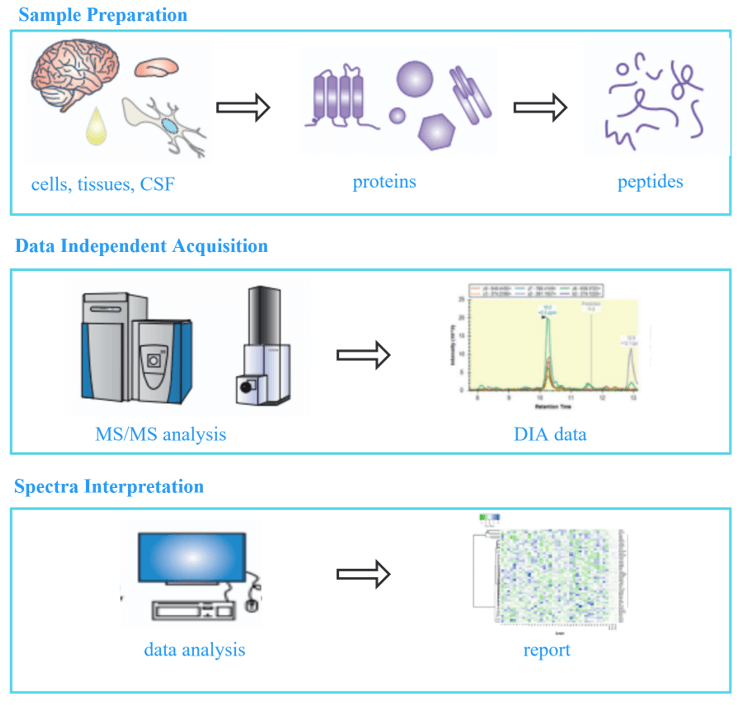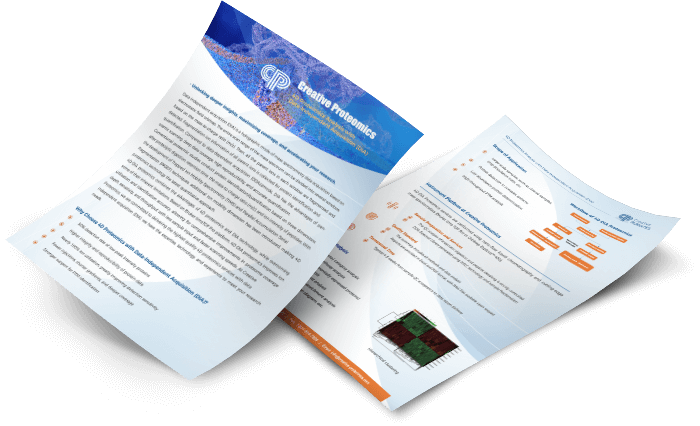Neuroproteomics Research Solutions
Nearly 1 billion people suffer from mental health problems worldwide. Especially in low- and middle-income countries, there are a high prevalence of mental illness, neurodegenerative diseases, and substance abuse problems. Moreover, over 75% of patients are not under timely and effective treatment. WHO has repeatedly called for a massive increase in investment in mental health.
Because proteins ultimately mediate all brain functions, MS-based proteomics has become a powerful and versatile toolset for neuroproteomics, which can study proteins and their functions in an unbiased manner. According to incomplete statistics, a total of 2,253 articles related to proteomics in the field of neurological and mental diseases have been published (302 articles published in 2020).
Proteomics technology combined with biological and phenotypic experiments to reveal autism risk factors, translational regulation systematically, and molecular regulatory processes, etc., has deepened our understanding of autism pathogenesis. Moreover, it provides a feasible approach to overcome the heterogeneity of autism and new research ideas for autism drug development. Furthermore, large-scale proteomics and phosphoproteomics analyses of brain tissue samples from Alzheimer's disease (AD) patients can characterize the molecular networks associated with the progressive stages of AD, and obtain differential proteins involved in the relevant pathways to screen for new candidates biomarkers. These findings have led to continuous advances in basic and clinical research, allowing early diagnosis and precise treatment of neurological diseases to be gradually applied in clinical care.
Our Neuroproteomics Proteomics Services
Creative Proteomics provides proteomics services based on DIA MS and 4D technologies, enabling large-scale proteomic or phosphoproteomic analysis of brain tissue or cerebrospinal fluid to reveal the pathogenic mechanism of neurodegenerative diseases and discover new biomarkers for diagnosis, treatment, and prognosis. Our targeted proteomics platform can also be used for qualitative and quantitative analysis of specific proteins according to your needs.
Neurological Disease Research
Our proteomics solutions are suitable for a wide range of therapeutic areas including but not limited below:
Alzheimer's disease
Parkinson's disease
Autism
Workflow

Advantages
High accuracy: QC CV as low as 25% for large projects
High throughput, 1000-2600 proteins can be quantified at once
Quantitatively identify nearly all detectable molecules, covering low abundance proteins/peptides
High repetition rate: repeatability increased by 30% and up to 90%
Complete and comprehensive sample information storage in the first analysis
Standard and advanced data analysis
Cost-effective
Sample Requirements
Proteins can be extracted from any biological source, such as whole tissues, cells, and body fluids. Creative Proteomics has developed an extraction method to obtain high-quality proteins from FFPE samples after extensive literature research and R&D testing.
| Sample Type | Protein | # of Cells | CSF(fresh frozen) | Fresh frozen | FFPE slices |
| Quantify | 100 ug | 1×107 cells | 500 uL | 1 mg | 2×5 μm FFPE slices (each 50-100mm2) |
Report
- Experimental steps
- Relevant experimental parameters
- Mass spectrometry spectra
- Raw data
- Proteomics analysis results
Reference:
- FabianHosp13 et al. A Primer on Concepts and Applications of Proteomics in Neuroscience. Neuron Volume 96 3, 1 558-571 (2017).


 4D Proteomics with Data-Independent Acquisition (DIA)
4D Proteomics with Data-Independent Acquisition (DIA)